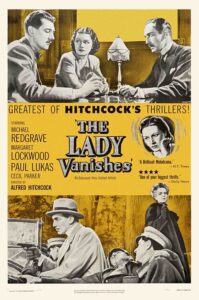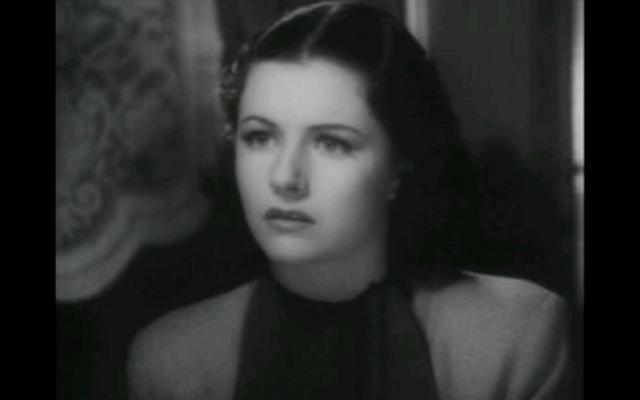Lady Vanishes, The (1938)
“I don’t see how a thing like cricket can make you forget seeing people.”
|
Synopsis: |
|
Genres, Themes, Actors, and Directors:
Response to Peary’s Review: Lockwood is “most appealing” as the leading protagonist (a “frivolous” rich girl who essentially “comes of age” on the train), and Whitty — who “has spirit and energy that belie her age” — is perfect as the mysterious title character; meanwhile, Redgrave (in his film debut) slowly grows on you as his character matures and he rises to the task of assisting Iris. The remaining supporting characters are all perfectly cast as well — though I must admit I’m not a fan of comedic team Naunton Wayne and Basil Radford, playing a pair of self-absorbed, cricket-obsessed Brits (they went on to star in several other films together — including the anthology horror flick Dead of Night, co-starring Redgrave). Peary notes that they provide “much of the film’s humor”, but I find them merely distracting and annoying. With that said, they — along with several other passengers — show their true colors in the film’s final dramatic sequences, when all loyal Brits are called upon to fight against corrupt Balkan police; indeed, this film — made just before the dawn of World War II — is, among other things, a clarion call to action against fascist forces. Redeeming Qualities and Moments:
Must See? Categories
Links: |





2 thoughts on “Lady Vanishes, The (1938)”
Yes, must-see – and in overall agreement with the assessment here.
It had been many years since my last visit with this one. It’s true that, in the first section of the film, you may very well find yourself wondering when exactly the story is going to get a fire under it. If I have any criticism, it’s that this section could have used a bit more punch to it. Not that it’s boring, but it seems as though the writers didn’t have enough zest in coming up with a more engaging launching pad for the storyline. Hitchcock plays most of this in an almost light comedy manner. Some more light comic wit in the actual dialogue could have perhaps done the trick.
But that’s ultimately a small matter since – as stated – once we’re on the train, away we go!
I think I read somewhere once that Redgrave hesitated taking the leap into motion pictures. (Seems a number of stage actors at the time were led to believe that movies were an inferior art form, not as dignified as THE THEATER!) But he brings wonderful shadings to his lines and, yes indeed, he does grow on us as his character develops and changes. I’m not that familiar with Lockwood’s work but she plays off Redgrave rather naturally and they’re a fine screen couple.
Since she does, after all, vanish, Whitty is not in the film all that much. But she’s note-perfect when she’s there.
It’s interesting to note – having just revisited ‘Torn Curtain’ – that, by comparison, ‘TLV’ has immense energy. It seems quite evident here that Hitch was having a lot of fun making this movie. His comic touch blends harmoniously with his desire to give the audience a thrill.
Try ‘Seven Sinners’ (1936) which seems very much like a dry-run for ‘The Lady Vanishes’ from the writing team of Launder & Gilliat.